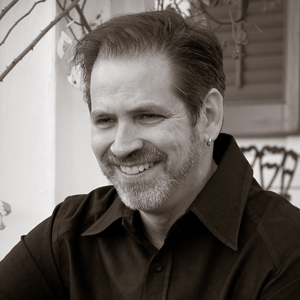As the world changes and information is available everywhere instantly, it appears that there is a casualty: the truth.
The new mirror
Of course, lying is nothing new, and there have been frauds and charlatans since the beginning of time, but never before has it been so acceptable and even necessary to change and distort reality. What lies (pun intended) behind this sea change in our character? Social media. Let’s examine how our platform on the internet encourages us to invent false personas.
- Social media glorifies the prettiest, most popular, world-traveling, important people. In the past, only truly famous people had to worry about looking good at the grocery store or at the beach. Now all our moments are displayed forever on our page. Therefore every young girl has learned how to “pose” like a movie star, every guy has a six-pack, and every rapper has an imaginary entourage.
- Every singer, songwriter, and performer has a fan page. (including me) While this is great for people to get their material out to new fans, it encourages everybody to name-drop, distort, and even invent credits in order to fool people into taking them seriously. Simply sounding good is nearly irrelevant in this blizzard of self-promotion. Those actually seeking new talent are likely to be led astray.
- Nobody wants to admit that they are a “regular” person. Instead, we are drawn into a competition of strutting and posing, since everybody is doing it. Humility is no longer a virtue.
We are being played
Likewise, the motive of social networks is ignored: to make money. While I have nothing against this motive, the problem is that these are free, ad-and-information driven sites that will do whatever they can to keep us hooked, and we find ourselves living in this fantasy world more and more.
- Social media makes money by knowing our patterns and preferences, then selling that information. They are not particularly interested in helping us reach our “fans.” Even people who have “liked” my fan page will not see all my posts (unless I pay to advertise them.) What they want is lots of users who are “open” about their personal details. How connected you are or how many CDs you sell is of no concern.
- While we are busy making ourselves look important, we are not doing the things that actually move us forward in our real pursuits; as a musician, this endless marketing to completely unknown or imaginary fans is a huge time-drain. But the rewards of actually getting better rather than just looking better are hard to sell. Enter those who don’t even bother with the former.
- We are falsely convinced that lots of “likes” or “followers” means we are on the right track. This new currency is enormously over-valued, since nobody outside these companies really knows how this information is used. While a “viral” video with millions of views can lead to some ad income, for the most part, these appear to be random events, and nobody knows how to reproduce this success. Furthermore, a lot of this notoriety is gathered by people willing to surrender their dignity to be popular. As an example the infamous “Friday, Friday” video was an example of parents willing to allow their child to do this.
Giving them the business
In the business world, everybody is a mover and a shaker. Everybody is “award-winning.” Name-dropping is expected. Hyped-up consultants parachute in with fluffed-up credentials nobody is willing to verify. Perception is reality, as long as everybody goes along. A willingness to appear important is rewarded and the cycle continues.
- Internet reviews of businesses are nearly useless; this is because they are either fake paid-for propaganda, or flaming diatribes by attention-seeking trolls. In either case, no real information is exchanged.
- Job-seeking sites are full of misleading references and claims. It is nearly impossible to verify this stuff, so many just take it at face-value.
- Again, being “regular” mom-and-pop operations is frowned-upon; seeming larger-than-life is expected, even for the most mundane operation.
What it is
In my experience, almost every real connection that has benefitted my career or personal life has been a true face-to-face experience; in music, playing a gig together, recording, or at least hearing the person perform. In my personal life, the only people I really communicate with on social networks are people I already know. As far as selling my music, gaining fans or getting gigs, all those opportunities have come from real personal contacts, not from imaginary “friends” online. Perhaps I am an exception, but others I have interviewed have had the same experience. So far, it’s a big lie.
This doesn’t mean that there is no point in having an online presence; this is an absolute must. But as far as actually getting anywhere, it appears that this is as big of a mystery as ever. So I choose to just go about it the same way as before:
- Try to do good work.
- Have it available so people can evaluate it; website, fan page, Soundcloud, YouTube.
- Be realistic about my place in the world.
- Be truthful and humble.



Pingback: The Big Lie, Part II | Randy Hoexter()